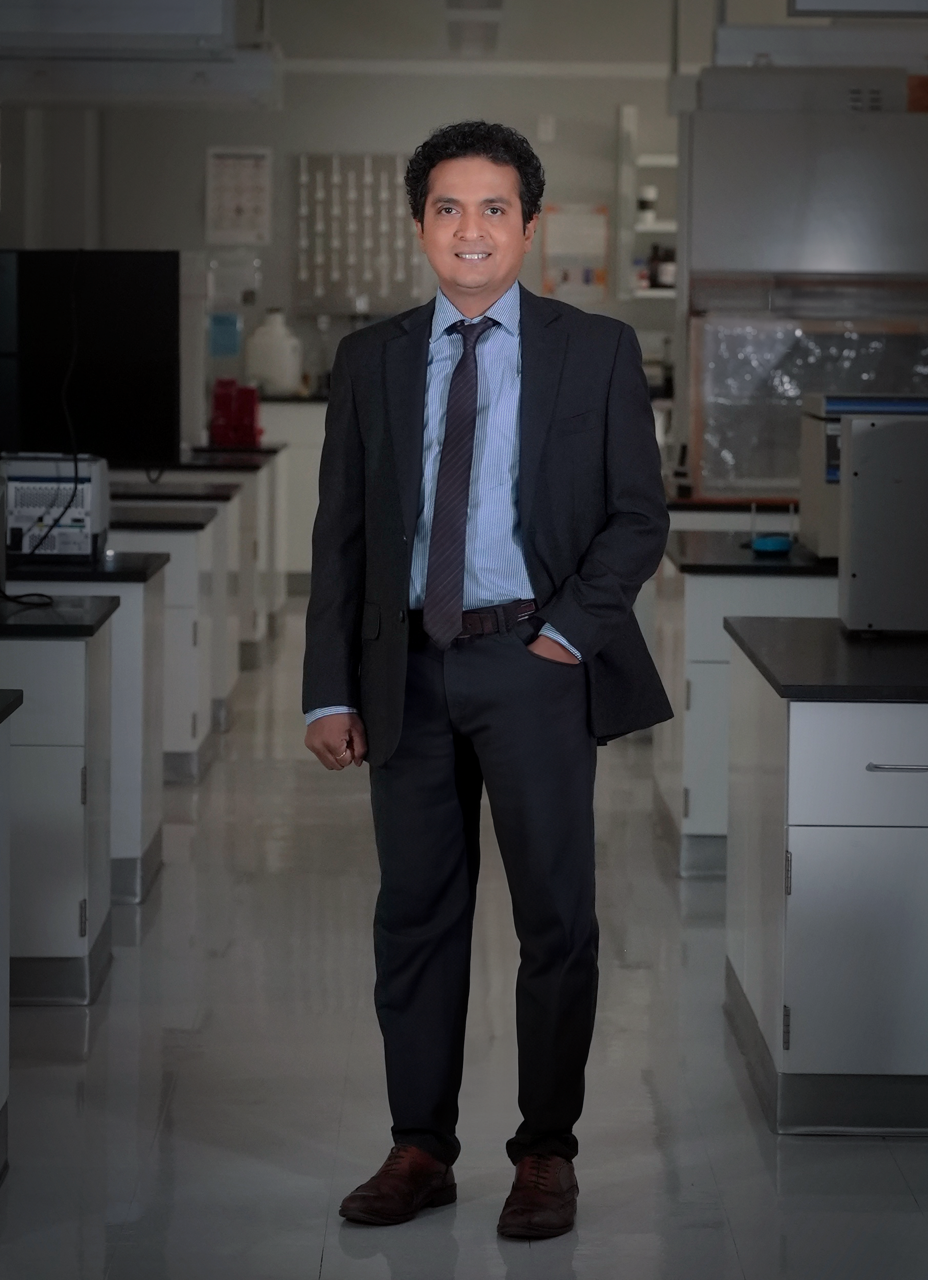- October 2, 2024
UTRGV’s Nirakar Sahoo receives NSF CAREER Award

Research targets cellular defense mechanisms to combat infections
By Maria Gonzalez
Dr. Nirakar Sahoo, associate professor, recently tenured, in the UTRGV School of Integrative Biological and Chemical Sciences (SIBCS), has received an Faculty Early Career Development Program (CAREER) award from the National Science Foundation for $992,639, to study xenophagy, a defense mechanism used by non-immune cells to protect against infections.
His research seeks new methods for enhancing the body’s natural defenses, potentially offering innovative treatments for infections – especially important as antibiotic resistance has become a growing concern.
Sahoo is the first UTRGV faculty member to receive the NSF CAREER award.
“This grant is a recognition for early-career faculty who integrate outstanding research and education,” he said. “It provides a key opportunity to advance the understanding of cellular defense mechanisms.”
Sahoo explained xenophagy by comparing it to a country’s specialized army.
“Immune cells act like trained soldiers, while non-immune cells, such as epithelial cells, function like local civilians who use everyday tools to defend their homes,” he said.
Xenophagy involves cells using lysosomes, which act as a cell’s recycling center, to capture and destroy harmful bacteria. His research will investigate how lysosomes are activated and regulated in the body to fight infection.
He said his primary objectives are to discover and explain the processes that keep lysosomes stable and efficient when facing bacterial threats. A significant part of the study looks at tiny gateways in the lysosome’s membrane that let important substances, like calcium, in and out and help break down harmful bacteria.
By understanding how these ion channels help with xenophagy, the research aims to find new ways to improve this natural defense mechanism. And therein could live new treatments for infections, Sahoo said.
“Such advancements could revolutionize disease management, potentially reducing reliance on antibiotics and helping to address challenges like antibiotic resistance,” he said.
In addition to the research, the NSF grant provides significant opportunities for UTRGV and its students.
“Students will engage in cutting-edge cell physiology research, gaining practical knowledge and skills crucial in the scientific field,” Sahoo said. “This is particularly impactful for students from underrepresented groups who might not typically have access to such opportunities.”
The project also aims to foster interest in the STEM fields, encouraging students to pursue further education and research careers in STEM and helping to diversify and strengthen the future workforce in science and technology.
UTRGV Provost Luis Zayas said the award is especially important in that it can enhance opportunities for faculty and students across the university.
“Dr. Sahoo’s NSF CAREER award not only reflects his exceptional work, but also brings tremendous opportunities for other faculty and students at UTRGV,” he said. “His accomplishment should inspire other assistant professors to pursue the highest levels of scholarship in their respective fields.”
Sahoo said the project includes partnerships with major medical research institutions and educational programs, like the UTRGV High Scholars Program, to enhance the scope and depth of research training.
“Such activities enhance the resources available for research and broaden the network and exposure for students, enhancing their research journey and career prospects in cell physiology.”
Dr. Can (John) Saygin, senior vice president for Research and dean of the UTRGV Graduate College said this NSF CAREER award is an important milestone for UTRGV.
“Dr. Sahoo is the first from our university to receive this prestigious recognition,” Saygin said. “His groundbreaking research not only advances our understanding of cellular defense mechanisms, but also brings us closer to our goal of becoming a prominent research university. We are committed to supporting innovative projects like Dr. Sahoo’s, which elevate our research profile and create transformative opportunities for our students and faculty.”
Sahoo said receiving the NSF CAREER grant is deeply meaningful to him because it not only validates the importance of the research being conducted, but also amplifies the potential impact of inspiring the next generation of scientists pursuing cell physiology.
“Xenophagy research remains relatively unexplored,” he said, “so this NSF award provides a key opportunity to advance the understanding of cellular defense mechanisms. Such advancements could pave the way for developing innovative therapeutic strategies that use natural cellular processes, enhancing the body’s ability to combat infections more effectively,” he said.
The project, titled “CAREER: Unravelling the Novel Role of Organelle Ion Channels in Xenophagy,” will be conducted over five years, from Aug. 1, 2024, to July 31, 2029.

